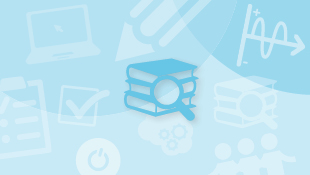-
Courses

Courses
Choosing a course is one of the most important decisions you'll ever make! View our courses and see what our students and lecturers have to say about the courses you are interested in at the links below.
-
University Life

University Life
Each year more than 4,000 choose University of Galway as their University of choice. Find out what life at University of Galway is all about here.
-
About University of Galway

About University of Galway
Since 1845, University of Galway has been sharing the highest quality teaching and research with Ireland and the world. Find out what makes our University so special – from our distinguished history to the latest news and campus developments.
-
Colleges & Schools

Colleges & Schools
University of Galway has earned international recognition as a research-led university with a commitment to top quality teaching across a range of key areas of expertise.
-
Research & Innovation

Research & Innovation
University of Galway’s vibrant research community take on some of the most pressing challenges of our times.
-
Business & Industry

Guiding Breakthrough Research at University of Galway
We explore and facilitate commercial opportunities for the research community at University of Galway, as well as facilitating industry partnership.
-
Alumni & Friends

Alumni & Friends
There are 128,000 University of Galway alumni worldwide. Stay connected to your alumni community! Join our social networks and update your details online.
-
Community Engagement

Community Engagement
At University of Galway, we believe that the best learning takes place when you apply what you learn in a real world context. That's why many of our courses include work placements or community projects.
Reading and Note-Making
Academic reading
Most university courses involve significant amounts of reading. Your lecturers will often provide you with reading lists, setting out the texts that they would like you to read for the topics covered in their modules. These readings are carefully chosen to help you gain a deeper understanding of the topics covered in lectures.
You may not be expected to read everything on your reading list. If you are in doubt, ask for clarification. Your lecturer should be able to indicate which readings are most important for you to tackle.
What will I need to read?
Most reading lists will include books or book chapters and academic journal articles. Academic journals operate a system of peer review, where experts in the field scrutinise articles submitted for publication. Your reading list could also include reports, government publications, conference papers, magazine or newspaper articles, interview transcripts, websites, blogs, theses, draft journal articles, and more.
Help - I'm not a big reader!
If you find reading difficult or boring, or are just not in the habit of reading a lot, the amount of reading required at university can come a shock. Even if you enjoy reading, you may find that reading for academic purposes is a very different activity to reading for pleasure or passing interest. Sometimes the language is unfamiliar or complex, or the concepts seem difficult. You can easily find yourself ‘bogged down’ or wading very slowly through the material.
When reading for academic purposes, try to be clear about your motivation at the outset. Ask yourself why you are reading a particular work:
- Are you reading for an assignment or an exam?
- Are you reading to get some general ‘background’ knowledge, or to get a deeper understanding of a certain topic?
- Are you reading to find or understand a particular point (or point of view), argument, or quote?
- Do you need a detailed grasp of the material, or do you need to skim for the main ideas, or scan for specific information?
Reading skills
Your approach to reading can differ depending on your motivation. If you just want to get a general overview of a text, you can ‘skim’ it for the main ideas. This involves reading through the text quite swiftly, noting only the main points or the general argument. Or you might ‘scan’ a text – an even speedier process, where you flick quickly through a reading to see if it might be useful for you or to pick out nuggets of information (such as quotes). For example, you could scan the ‘blurb’ on the back of a book, the introduction or concluding chapters, or the so-called ‘abstract’ of a journal article (which summarises the article content).
However, much of your reading will be more concentrated than this. See our top tips for academic reading for some advice to help you with the deeper type of reading you will encounter as a student.
Note-making
A skill that is strongly linked to reading is the skill of note-making for assignments, revision, and exams. This is quite a different skill to that of note-taking in lectures and tutorials (see our top tips for note takingin the Lectures and tutorials section in Getting Organised for more on the latter).
For any topic you study, you'll have a range of reference material (your own class notes, notes or slides provided by your lecturers and tutors, videos and recordings, books and journal articles, assignments, past exam papers, online resources, and so on). The aim of good note-making is to distil these various sources into a concise and comprehensive set of notes.
Your notes should be original (that is, written in your own words) and unique (that is, unlike any other student’s notes). Creating notes like this will help you to see themes and make connections that may not have been evident before, and should provide you with a very useful resource for revision.
















